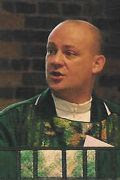Rod Dreher on the Claims of Tradition

Don Dreher of the Dallas Morning News is one of the most thoughtful and interesting conservatives writing on faith issues today.
Today he has a very thoughtful post about tradition and religious faith--particularly on issues of sexuality. He frames the issue well, and asks some questions, but leaves the answers to us:
So, if it's understandable when society evolves to discard myths that no longer serve its perceived interests (or at least desires), why shouldn't religion be subject to the same laws of evolution? The modernist says they absolutely should; the traditionalist says they should not.
But here it gets complicated. Tradition has to be flexible enough to adapt to different circumstances without losing its core principles. And when the required/desired adaptation is too difficult to manage credibly, sometimes tradition will make a face-saving adjustment, and call it fidelity (e.g., the fact that modernizing Islamic nations have developed a Muslim banking system that somehow gets around Islamic prohibitions on interest). The question facing Christians now is whether or not the Christian faith should adapt itself to modern sexual mores. As anybody reading these comboxes can see, it's a question that generates far more heat than light.
One can more easily give up, say, reverence for the Alamo, or Robert E. Lee, etc., than reverence for the Bible and the saints, because the former is secular history, and the latter is sacred history. The fate of one's eternal soul does not depend on whether or not one reveres Stonewall Jackson (though the fate of one's culture probably does). Real religion, serious religion, instead of Moralistic Therapeutic Deism, is a myth that's true. That was Tolkien's line to Lewis, explaining Christianity in a nutshell: a myth that's true. R.E. Lee, or the King of France, or Tsar Nicholas, might have been a hero or a villain, but in the end, the Kingdom of God doesn't stand or fall on who you say they are. In the Christian view, it does stand or fall on who you say Jesus is.
Read it all and join the conversation.
Here is the comment that I made on Rod's blog:
I think that it is important to note that many Christian denominations have already moved on several issues of tradition in the past. For example, most Protestant denominations allow for divorce, and even have divorced priests and Bishops. And well into the 17th Century, it was clear Catholic teaching that earning interest on a loan is sinful. This tradition has been abandoned by all but a handful of Christian denominations.
So, how do we approach tradition in modernity? It seems to me that the answer you give will depend on your view of the scriptures. If the Bible is inerrant, there is not much to discuss (except why Christians who accept this view get divorced and have mortgages despite clear scriptural prohibition against both
If, however, you accept the Bible as the inspired word of God, but also accept that it was written by fallible humans who reflected the common cultural norms of the time, the question becomes this: it this traditional teaching one that comes from fallible human beings or from God? In doing so, it seems appropriate to use all the tools we can use--biblical scholarship, science, and yes, our modern experience.


Comments